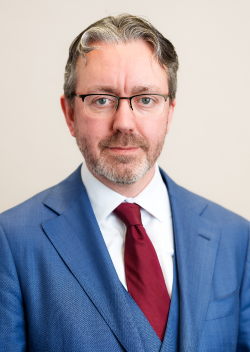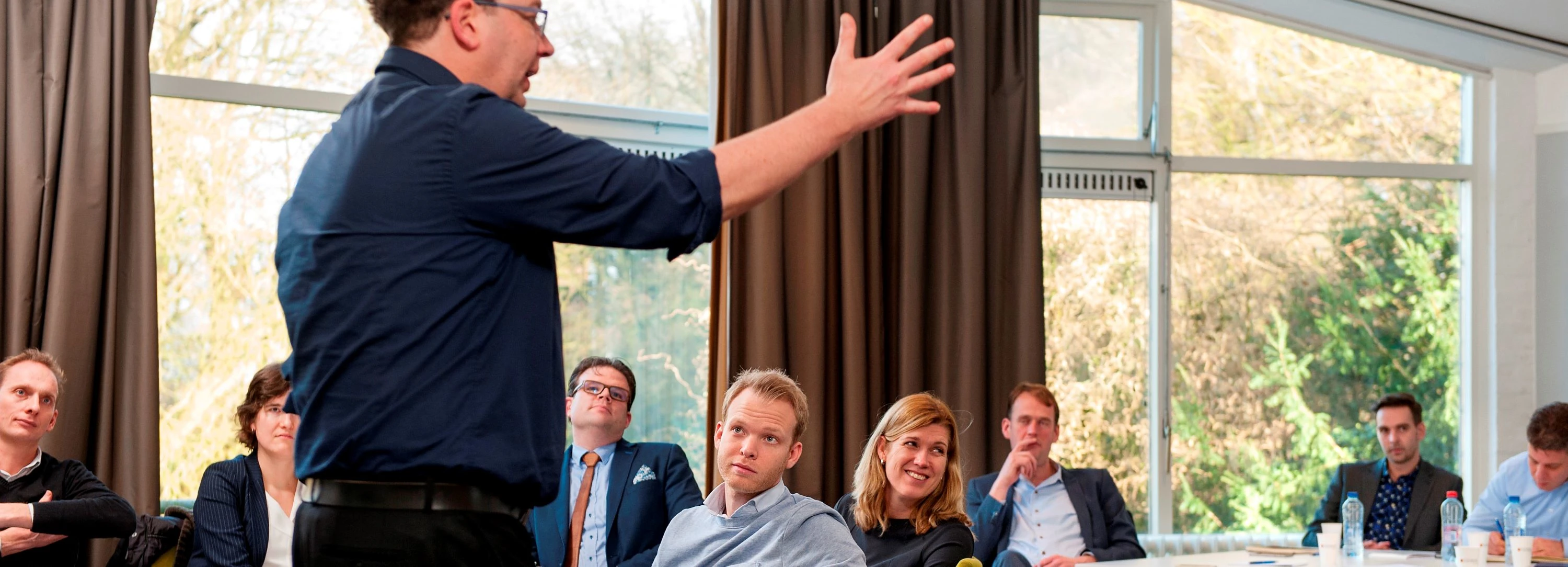The way we govern our enterprises is under pressure, according to Prof. Dr. Jeroen Veldman in his inaugural lecture on May 29. “Organizations are increasingly confronted with expectations from various quarters. These expectations often pertain to mitigating systemic risks such as climate change. This development affects how we implement corporate governance."
 Jeroen Veldman is Professor of Corporate Governance at Nyenrode Business University. In his inaugural lecture, he discusses the growing involvement of regulators, institutional investors, and societal stakeholders, and its consequences for the management of a company. "You see pressure on organizations coming from multiple directions. Think of a shareholders' meeting at Shell, where demonstrations are held outside by people concerned about the climate. And what about lawsuits filed by organizations like Greenpeace and Milieudefensie (Friends of the Earth Netherlands)? You see more and more parties getting involved in the operations of a company. These can be external stakeholders, but also employees or shareholders who are concerned about long-term risks and market stability."
Jeroen Veldman is Professor of Corporate Governance at Nyenrode Business University. In his inaugural lecture, he discusses the growing involvement of regulators, institutional investors, and societal stakeholders, and its consequences for the management of a company. "You see pressure on organizations coming from multiple directions. Think of a shareholders' meeting at Shell, where demonstrations are held outside by people concerned about the climate. And what about lawsuits filed by organizations like Greenpeace and Milieudefensie (Friends of the Earth Netherlands)? You see more and more parties getting involved in the operations of a company. These can be external stakeholders, but also employees or shareholders who are concerned about long-term risks and market stability."
Magic words
"For a long time, corporate governance was something that took place in the interaction between the board, the supervisors, and the shareholders of an organization", Veldman continues. "Now that other parties are 'knocking on the door', we need to consider how to implement the corporate governance model. Since the relationship between management and shareholders still remains central to corporate governance theory, independence in the supervisory role and transparency are the magic words we must work with. By transparency, I mean making the impact of the organization on the environment visible, for example, regarding nature or human rights. Conversely, transparency also means: how does this impact fit into the business model? This development leads to non-financial reporting becoming essential."
Sustainability reporting
The obligation for non-financial reporting, also known as sustainability reporting, is enshrined in the Corporate Sustainability Reporting Directive (CSRD), a European directive for large companies, effective since 2024. "This means that companies must start reporting differently. For instance, institutional investors such as pension funds. They do not invest their own money, but the money of their clients. In their reporting, they must now account for what they have invested the money in." Although the intent of the CSRD is to encourage market players to make 'greener' investments, Veldman also cautions against the dilution of this directive. "We must not underestimate how complex the laws and regulations are and what this means for organizations and their employees. To record all the required data, a new infrastructure must be established, in which data from partners must also be recorded. This is a complex process that is expected to create significant pressure. And I have not even mentioned the lawsuits yet that could ensue when an organization fails to comply with the regulations."
Leadership
In his inaugural lecture, Veldman urges legislative bodies to give companies the time to effectively implement the CSRD and to make the rationale behind the legislation clear, that is, what is the underlying goal of the CSRD? Furthermore, Veldman advocates for the sharing of best practices and the establishment of ecosystems. He also emphasizes the importance of lawmakers, shareholders, and directors coming together to find shared solutions, even when there are conflicting interests. "Leadership is essential in that process: where do we want to be in five to ten years, and how are we going to ensure that we get there?"
As of January 1, 2023, Jeroen Veldman has been appointed as Professor of Corporate Governance at Nyenrode Business University. As Professor, Veldman will conduct research into the institutional embedding of Corporate Governance. His main focus will be on the question of how laws and regulations, codes and behavior change in the context of transitions.
Related programs
-
Digitalization and Boardroom Dynamics
Start date: 24 March 2026Language:- English
Location:- Breukelen
The module Digitalization and Boardroom Dynamics looks at technology's effect on the board. Part of the Modular Executive MBA Business & IT.
View program

